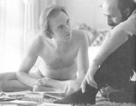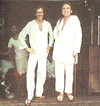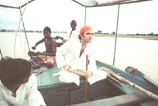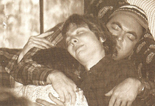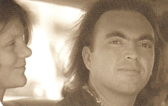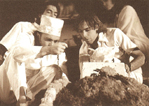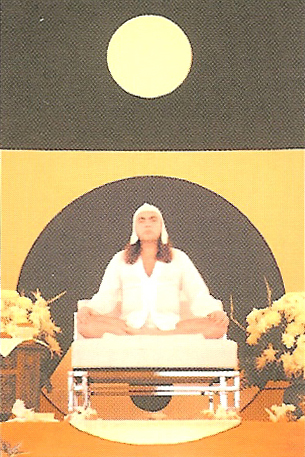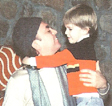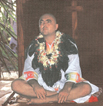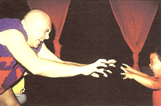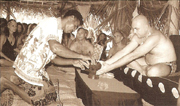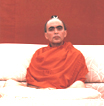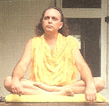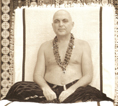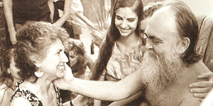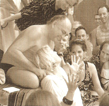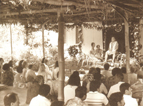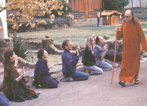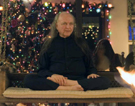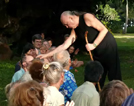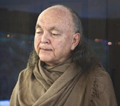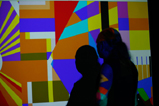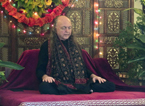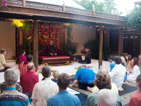Adi Da Up Close
Audio/Video Library
4,374,549 viewings/listens here since our AUDIO/VIDEO LIBRARY opened on Jan. 27, 2009.
(For more, see our graph.)
Our multimedia library currently contains 1,010 YouTube video clips and audio clips about (or related to) Adi Da and Adidam.
4 audios/videos from the series:
The Yoga of Human Emotional-Sexual Life
[SHOW ALL 1,010 VIDEOS INSTEAD]The Yoga of Human Emotional-Sexual Life
An audio excerpt from Adi Da Samraj's early talk, "Renouncing the Search for the Edible Deity", accompanied by more recent photos of Adi Da.
Adi Da: "When we look out into the universe we feel insulted, rejected, unloved. And so we make philosophy out of our apparent independence. Fundamentally, it is not our experiences in particular relationships that tell us we are not loved. Some people do not love us, surely, but nevertheless we are simply, always, and already philosophically disposed to believe that we are not loved. It is our interpretation of existence, not on the basis of any relational experience we have had with other human beings, but on the basis of our apparent independence itself. Our sense of independent bodily existence means separation to us, whereas, you see, it is really only the sense of independent bodily existence. When you become strong — if you ever can become truly strong — autonomous, able to take a deep breath, then you stop interpreting the universe as a form of rejection, as a great parent from whose company you have been expelled, under whose domination you live, who has rejected you and does not love you. Everyone is simply born into the conventional condition of independence and everyone interprets that condition as rejection, as 'you don't love me.' "
"Renouncing the Search for the Edible Deity" is available as a CD here. A transcript is also available online and as a chapter in the book, The Yoga Of Right Diet.

Adi Da: "When we look out into the universe we feel insulted, rejected, unloved. And so we make philosophy out of our apparent independence. Fundamentally, it is not our experiences in particular relationships that tell us we are not loved. Some people do not love us, surely, but nevertheless we are simply, always, and already philosophically disposed to believe that we are not loved. It is our interpretation of existence, not on the basis of any relational experience we have had with other human beings, but on the basis of our apparent independence itself. Our sense of independent bodily existence means separation to us, whereas, you see, it is really only the sense of independent bodily existence. When you become strong — if you ever can become truly strong — autonomous, able to take a deep breath, then you stop interpreting the universe as a form of rejection, as a great parent from whose company you have been expelled, under whose domination you live, who has rejected you and does not love you. Everyone is simply born into the conventional condition of independence and everyone interprets that condition as rejection, as 'you don't love me.' "
"Renouncing the Search for the Edible Deity" is available as a CD here. A transcript is also available online and as a chapter in the book, The Yoga Of Right Diet.
The excerpt of Adi Da talking is followed (at 6:36) by commentary by longtime devotee Abel Slater.
Adi Da: "Sex is fundamental ego-identity, lived. And generally speaking, it is a problem for everyone. . . The social pattern of 'self' and 'other' is founded upon emotional-sexual patterning to a very great degree. . . So it certainly is an important dimension of bondage, and therefore an important aspect of sadhana. The Perfect Practice is not based on any reference to the body-mind, or any method of the body-mind."
In this Avataric Discourse (from January 21, 2005), Adi Da explains why the Perfect Practice (the most advanced development of the Way of Adidam) has nothing to do with sex (or the ego-"I" altogether), and is not a "method" of the body-mind or something to be applied to the body-mind. The Self-Condition prior to the body-mind is the domain of the Perfect Practice. The Self-Condition is not a separate "self", but the Nirvanic Condition that is always already the case, and that inherently transcends the body-mind.
This excerpt is from the DVD, Beyond Sex, Science, and self. Subtitles in English, Spanish, French, Italian, German, Dutch, Russian, Polish, Czech, and Hebrew.
A CD version is also available.
Tags: Avataric Discourse Perfect Practice DVD CD

In this Avataric Discourse (from January 21, 2005), Adi Da explains why the Perfect Practice (the most advanced development of the Way of Adidam) has nothing to do with sex (or the ego-"I" altogether), and is not a "method" of the body-mind or something to be applied to the body-mind. The Self-Condition prior to the body-mind is the domain of the Perfect Practice. The Self-Condition is not a separate "self", but the Nirvanic Condition that is always already the case, and that inherently transcends the body-mind.
This excerpt is from the DVD, Beyond Sex, Science, and self. Subtitles in English, Spanish, French, Italian, German, Dutch, Russian, Polish, Czech, and Hebrew.
A CD version is also available.
Tags: Avataric Discourse Perfect Practice DVD CD
In 1986, Adi Da made His first visit to the European community of His devotees. He travelled through England, France and Holland. In the South of Holland, in the village of Maria Hoop close to the German border, a former Catholic monastery was found which could be rented for a few weeks. Devotees swiftly cleaned buildings and the grounds. Adi Da stayed in a specially prepared wing of the monastery for several days. During this time, He granted Darshan and held "Question and Answer" occasions in the chapel (now called Adi Da Kapel) with German, English, Dutch, French and American devotees. The former monastery has since been acquired by the European community of Adidam and is now known as The European Danda.
In this rare excerpt from one of the "Question and Answer" occasions, Adi Da addresses the primal human emotion of doubt in a most direct and simple manner. He describes how doubt is not ultimately a sign that we have been "betrayed" in some way. The radical solution to doubt is to identify with the Divine Itself, beyond the temporary cycles of the body and mind and beyond the sense of being a separate self.

In this rare excerpt from one of the "Question and Answer" occasions, Adi Da addresses the primal human emotion of doubt in a most direct and simple manner. He describes how doubt is not ultimately a sign that we have been "betrayed" in some way. The radical solution to doubt is to identify with the Divine Itself, beyond the temporary cycles of the body and mind and beyond the sense of being a separate self.





